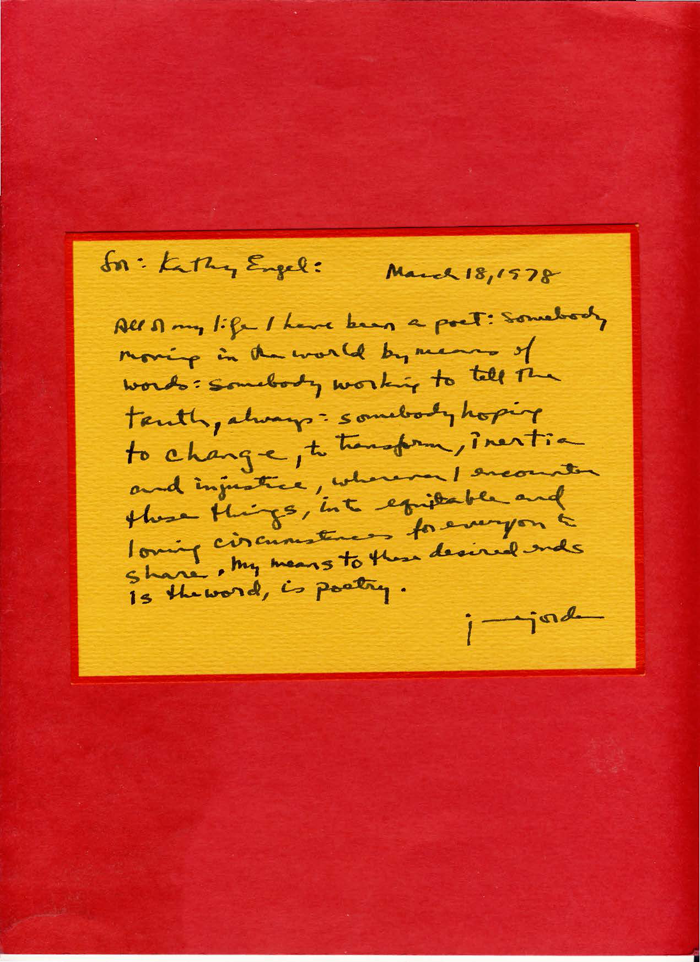Teach This Poem, though developed with a classroom in mind, can be easily adapted for remote learning, hybrid learning models, or in-person classes. Please see our suggestions for how to adapt this lesson for remote or blended learning.

A 1978 postcard sent by June Jordan, from the Academy of American Poets archive
-
Warm-up: Look at the image of the postcard here, and think about the statement Jordan gives. Now, write your own statement. Who are you? What is it that you hold most dear? What social justice issues are important to you?
-
Before Reading the Poem: (Teachers, you may want to ask students to do this step as homework before class.) Find three to five headlines from news stories you remember from the past year. Bring to class just the headlines and not the full stories. (Teachers, display these headlines where students can view them and feel free to add some of your own too.) Take a gallery walk through all of these headlines. What words, phrases, or themes are repeated? What might that tell you about 2020?
-
Reading the Poem: Read the poem “Roman Poem Number Thirteen” by June Jordan silently. What do you notice about the poem? Annotate for any words or phrases that stand out to you or any questions you might have.
-
Listening to the Poem (enlist two volunteers to read the poem aloud): Listen as the poem is read aloud twice, and write down any additional words and phrases that stand out to you.
-
Small-group Discussion: Share what you noticed in the poem with a small group of students. Based on the details you just shared with your small group, and your discussions from the beginning of class, how would you describe the tone in the poem? Why?
-
Whole-class Discussion: How does this poem compare to the poet’s statement from the beginning of class? How does the speaker seem to feel about violence and about hope? What do you think of the last two lines of the poem: “Your voice / breaks very close to me my love”?
-
Extension for Grades 7-8: At the beginning of class, you wrote your own statement, an artist statement of sorts. Keeping in mind both that statement and Jordan’s poem, write a poem that explores who you are and what is important to you.
-
Extension for Grades 9-12: In the postcard, Jordan described herself as “somebody hoping to change, to transform, inertia and injustice.” Choose another Black woman leader to learn more about from this link here. Create a Powerpoint or Google Slides presentation about what you learned and present to your classmates.
“‘I am black alive and looking back at you,’ June Jordan announced in 1969. She kept looking, and protesting, and advocating, and clarifying her life, and setting examples for radical activists, until her death in 2002.” In this review of We’re On: A June Jordan Reader—which includes an anthology of accompanying poems—Stephanie Burt offers a valuable overview of the poet and activist’s work. Read more.
This week’s poetic term is repetition, referring to the poetic technique of repeating the same word or phrase multiple times within a poem or work. Read more.
